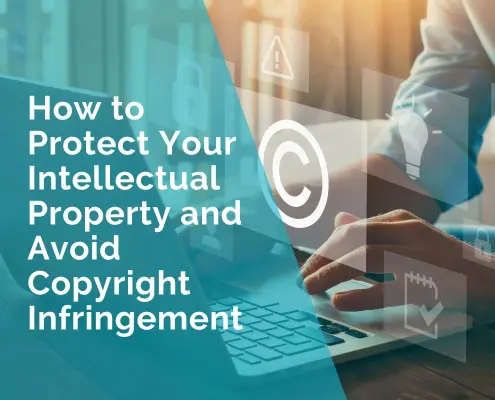Google’s AI & The Future of SEO: What You Need to Know in 2025
Google’s AI is transforming search. Fast.
To compete, you must adapt. Now.
The digital landscape evolves faster than ever. Google is at the forefront of this innovation, maximising the power of AI to redefine search this 2025 and beyond. Traditional SEO tactics that used to be effective may become obsolete. User intent and content relevance are more important than ever. Keyword stuffing and relying on backlinks alone will no longer suffice.
Understanding the changes in Google’s AI is paramount for small business owners. Failure to do so could mean giving up the possibility of landing on top of search engine results. So, what can you do? Read on and discover how to survive the new era.
How Google’s AI is Reshaping Search in 2025
AI dominates many facets of society, including search engines. Google has been proactive in introducing many changes in its algorithms. Below, let’s look at some of them and discuss how they’re poised to change the SEO game, even for small businesses.
AI-Generated Summaries
AI Overviews are at the top of Google search results. These are dynamic summaries or answer boxes from large language models. Users don’t have to click multiple links or visit different websites to get the information they’re looking for. Google scans online content, determines what’s credible, and presents it in a format that’s easy to comprehend for the searcher.
Along with the answer to the query, AI Overviews also feature direct and clickable links within the answer text. Footnote-style citations are also present. They contain a link to the original information source. Ads may also be featured. These are some ways by which your small business can become more visible.
Using the right keywords alone will not get you on AI Overviews. It requires a more comprehensive strategy. Here are some things that can help:
- Publish high-quality content that Google will recognise. Only the best and most relevant information is published on AI Overview. Make your content informative and useful while still using the right keywords.
- Optimize the content based on user intent. Your content must emphasise the searcher’s intention. The answers you provide must be clear and direct.
- Make your website AI-friendly. This means utilising structured data or schema markups. They will tag information on your website, so Google can find them.
Multimodal Understanding
Some search queries may be too complex. They may not have direct answers. And this is where Google’s Multitask Unified Model (MUM) enters the picture. It understands questions in different languages and formats. And by format, that means text, voice, images, and more. For example, the user can upload pictures of shoes and Google can relay if those are suitable for hiking, walking, or other activities.
SEO is traditionally about individual queries. Optimisation often centres on the texts. But with MUM, the search goes beyond what’s superficial. It also removes language barriers, improving access to information. This allows Google to show content that may be in another language but relevant to what a person is searching for.
To take advantage of Google’s multimodal understanding, small businesses must:
- Create in-depth and well-organised content that provides comprehensive coverage of topics relevant to your niche.
- Build a network of related content and clustered topics, which can make Google recognise your authority.
- Optimise the use of visual assets like pictures and videos. They must be accompanied by relevant file names and alt texts.
Hyper-personalised Results
Search results are now more personalised. Google’s AI relies on individual preferences and habits. A vast amount of data is used, including browsing history, location, device usage patterns, and even your personal interests.
Similar search queries will yield different results depending on the person. For example, a quick search for “winter coats” will show different sellers in Melbourne, Brisbane, or wherever the searcher is. As a result, standing out in a crowded market becomes more challenging. This is where a small business can maximize the benefits of local SEO.
Become more visible in a sea of hyper-personalised results by assessing your online performance. You can use umbrellum.com to adopt robust SERP features tracking. This will allow you to see where your keywords are ranking. You’ll also get a picture of your standing in knowledge panels, local packs, and carousel listings. Based on what you track, you can refine content to suit your target audience.
Aside from tracking performance, here are other things that might help:
- Create a Google Business Profile, making sure all details are accurate.
- Publish localised landing pages. This is especially important if your business serves customers in different cities or neighbourhoods.
- Add location-specific keywords in your listings or contents.
Natural Language Processing (NLP)
Thanks to NLP, Google can effortlessly decode human language. It can make sense of complex questions and long-tail queries. For example, let’s say a user is searching for a “pet-friendly cafe near me that serves vegan food.” Google analyses context and intent to deliver precise answers. It can also recognise synonyms and colloquial phrasing. This is an improvement from what used to be a mere keyword matching.
NLP rewards content that reflects natural conversations. Articles populated with keywords or those with rigid structures are ineffective. Hence, you must be more mindful in crafting content to incorporate human elements. Doing so can help computers process language just like humans.
Here are some ways to adapt your content strategy for NLP:
- Create user-centric and conversational web pages or blog articles. They must answer real-world questions in a natural and engaging tone.
- Use AI-powered tools to craft high-quality content. But make sure to refine them to reflect your brand voice or persona.
- Research long-tail phrases, related terms, and content-rich semantic clusters. Incorporate them into your content.
Preparing for the Future: Long-Term SEO Strategies
One thing about Google’s AI is that it is ever-evolving. As it continuously changes, your strategies must keep up. Otherwise, you’ll be left behind. This means being not recognised by Google and overtaken by your competitors. For small businesses, this could spell the difference between thriving and vanishing.
Build a Brand, Not Just a Website
Brand authority is a priority in Google’s AI. A business with a solid reputation is more important, increasing the possibility of claiming the top spot on search engine results. Take the time to build trust, expertise, and relevance.
- Create a Niche Expertise: Find your place in a world with endless alternatives. Specialise in a specific audience instead of competing in a broad market.
- Leverage Social Proof: Gather and share customer reviews to increase visibility. Build local partnerships and highlight media mentions.
- Publish Consistent Content: Success doesn’t happen overnight. Schedule publication of content in different mediums across various platforms.
Stay Agile
Google consistently updates its AI algorithms. Monitor. Test. Adapt. Yesterday’s best practice may be obsolete tomorrow. So, don’t get stuck on what’s relevant today. Future-proof your small business by thinking ahead. Agility will separate winners from losers.
- Track Algorithm Updates: Use free online tools to see what’s new and modify your strategy to suit the changing search landscape.
- Audit Quarterly: Review your content, keywords, and backlinks. See what your competitors are doing, especially those that rank higher than your website.
- Utilise A/B Testing: This may seem time-consuming, but it’s rewarding. By doing so, you can find your weaknesses.
- Invest in Continuous Learning: This will help you keep up with the latest trends in search engine marketing. Paid online courses and videos are excellent sources for new information in your industry.
Go Beyond Text Search
Google goes beyond the textual elements of a website or content. The trend is shifting to also include visual and voice. It can make your website more engaging and inclusive, depending on who you’re trying to target.
- Add Multimedia Content: Be creative when it comes to uploading content. Optimise them by adding descriptive texts or tags.
- Think of Load Times: Adding photos and videos to your website can slow loading times. Thus, it can increase the bounce rate. Compress large files without losing quality.
- Include Transcripts and Captions: Doing this for videos improves accessibility. It also provides textual content that search engines can recognise.
The Future of Search: Beyond Google
According to Gartner, search engine volumes can drop by as much as 25% by 2026. With the decline in Google queries, there’s a rise in the use of other platforms. TikTok is a prime example. As such, embracing a multi-channel strategy is necessary. From Amazon’s product search to Pinterest’s visual discovery, find a way to optimise your content. Instagram and Reddit are also go-to choices for hyper-local recommendations, so make sure to take advantage of them.
Use comprehensive tools for cross-platform analytics. This can help you determine where your buyers are. It also gauges performance, so you can identify strengths and weaknesses. You don’t need to be present on every platform. Find out which ones can yield the most benefits.
And whether it’s with Google or others, ethical considerations are essential. Data privacy, misinformation, and algorithmic bias are important issues to address. Be aware of the policies on each platform and research international standards to incorporate into your marketing plan.
Wrapping Up
Google’s AI is transforming search into a more intuitive, personalised, and interactive experience. Users will benefit from faster, more accurate, and context-aware results. Keywords and backlinks still matter, but they’re just among the many factors search engines will prioritise. As a small business owner, it’s time to rethink and reframe your strategies. Otherwise, you risk getting left behind.
What are you doing to remain relevant? Act now! And it’s not only Google that you should prioritise. Uncover the potential of other platforms and cement your position at the top. Win the battle for attention and leverage the power of AI!
***************
Tania Nichols










